20 Surprising Reasons Your Hair is Thinning

If there’s any one thing we’ve all suffer from time to time, it’s a bad hair day. But, for a large percentage of the population, these bad hair days are nothing compared to steadily losing your hair every day. According to the American Hair Loss Association, around two-thirds of men will begin to lose their hair by age 35. But even more surprising is this: of the 85 percent of the population that will eventually suffer hair loss by 50, women make up about half.
In other words, no one’s truly safe from the condition. But even in the face of these seemingly insurmountable odds, not all hope is lost for your precious locks. To show your hair some TLC (and prevent further thinning), look out for these surprising culprits—and combat them accordingly. And if you need a quick way to mask any thinning hair, just check out the 15 Best Haircuts for Looking Instantly Younger.
1
A new medication
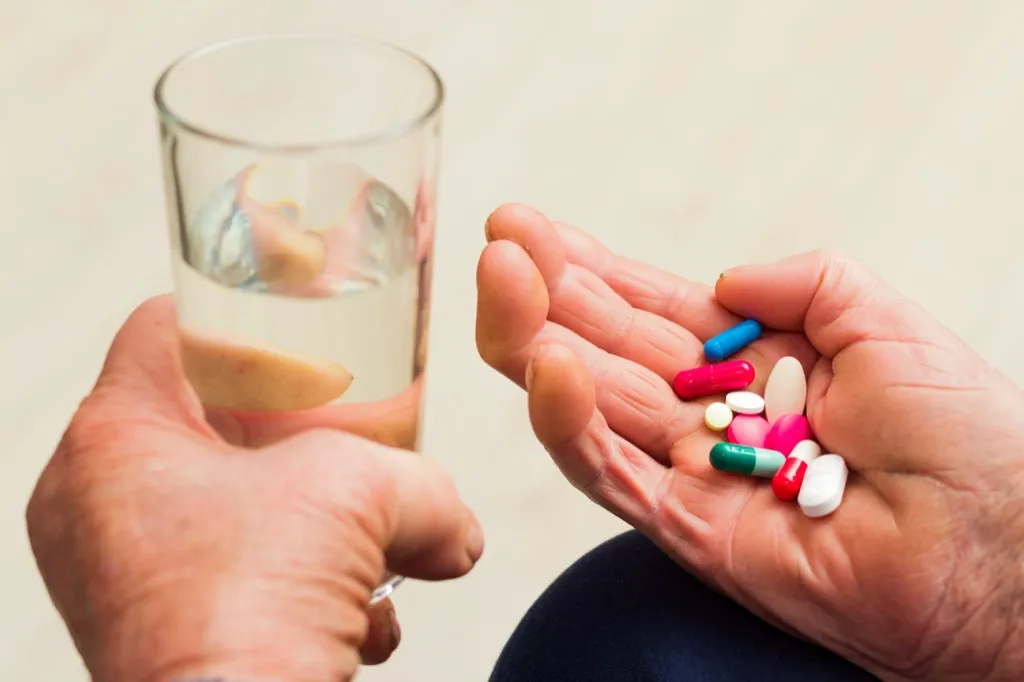
A new medication can bring about a whole host of changes to your body—while also affecting the rate at which hair grows on your entire body. Certain medications can lead to two types of hair loss: telogen effluvium and anagen effluvium. Telogen effluvium can begin to take effect within the first two to four months after taking a new medication. If you notice more hair loss than usual, notify your doctor immediately to save your most prized possession from further damage. The second type of hair loss, anagen effluvium, is most common in cancer patients receiving regular doses of chemotherapy. This type of hair loss prevents your matrix cells from producing new hair altogether, meaning that you may lose hair on other parts of your body as well. And for more ways to make the most of your mane, check out these 15 Top Hair Tips from Top Hollywood Stylists.
2
Your workout regimen

Calling all gym fanatics—if you’re spending more time in the gym than you’re spending at home, it may be time to reevaluate your regimen. According to a study in the Annals of Dermatology, the more strenuous a participant’s workout routine was, the more likely they were to experience hair loss later in life. If you’re pumping iron more than a few hours a day, it’s going to affect your hairline. So, if you’d like to keep your hair, cutting a few hours of gym time every week may be the trick.
3
An iron deficiency

While hair loss isn’t the most common symptom of anemia caused by an iron deficiency, there are still a number of people suffering from this predicament. According to a study in the Journal of Korean Medical Science, those affected by this specific type of hair loss can experience symptoms for a number of years. Since iron plays a crucial role in producing hemoglobin, a compound that carries oxygen to cells, this can mess with your body’s ability to carry out essential processes like hair and nail growth. You can make up for this deficiency by upping your protein intake, or by taking iron supplements—though you should talk to a doctor before doing this. And for more on the essential nutrients you may need, check out these 50 Best Supplements on the Planet.
4
Birth control
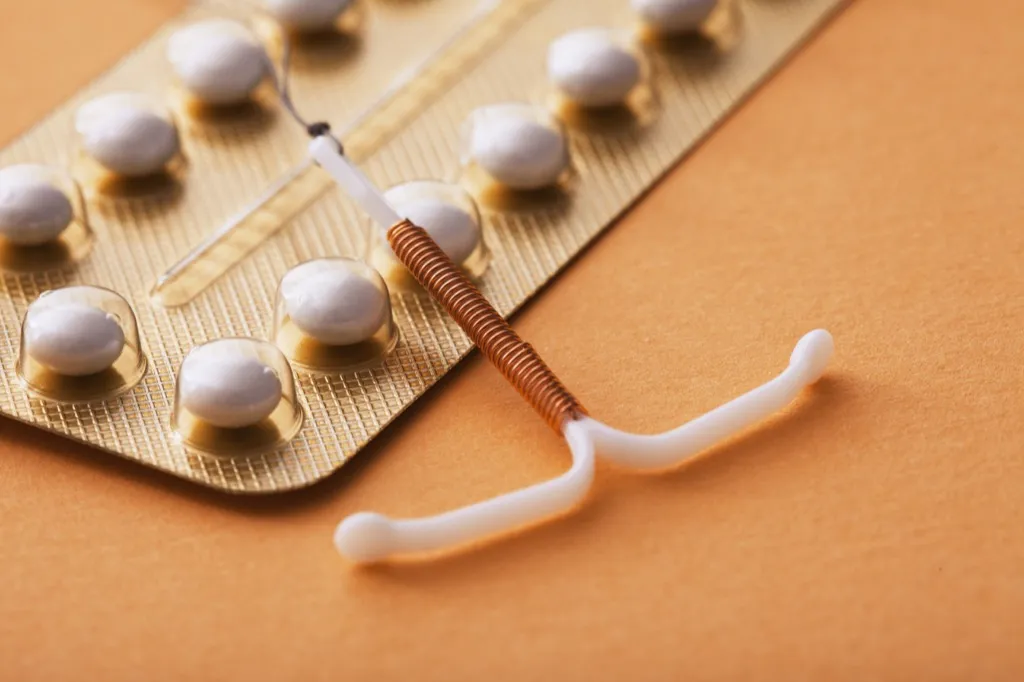
When your hormones are out of step, your hair truly suffers. In a study in the International Journal of Women’s Dermatology, researchers found that birth control can cause a relative increase in androgen levels that then causes a corresponding increase in DHT production, which researchers believe shrinks the hair follicle. If you want to be on birth control but have a predisposition for genetic hair loss in your family, researchers suggest steering clear of birth controls that release higher amounts of estrogen and progestin like progestin implants, hormone injections, skin patches, and vaginal rings.
5
Clogged hair follicles

Yes, we’re all for the quick wash and rinse routine in the shower, but how much damage is this brevity doing to your hair? As it turns out, quite a bit. Aside from the leftover product residue, there are some of us who produce more Sebum, which naturally lubricates our skin. It’s what makes your shiny and greasy after a few days without a shampoo. If you’re a healthy adult experiencing hair loss, you can probably blame this occurrence on clogged hair follicles. The solution? Start using a clarifying shampoo two to three times a week. Be sure that the shampoo does not contain any conditioner, as this is the stuff that created the problem in the first place. And for more great hair care tips, check out the one haircut that will shave 10 years off your age.
6
The wrong products

If you’re beginning to notice more of your hair clogging up the drain, it may be time to do a thorough assessment of the products you’re using on a daily or weekly basis. For starters, as previously mentioned, it might be a good idea to replace your standard shampoo with one that is strictly clarifying. While you’re in the shower, right after you’ve rinsed the conditioner out of your hair, stimulate hair growth by giving your scalp a quick 30-second massage. Finally, forego the stigma of Rogaine to reap the scientifically-proven benefits that are an easy addition to your morning routine.
7
You’ve just given birth
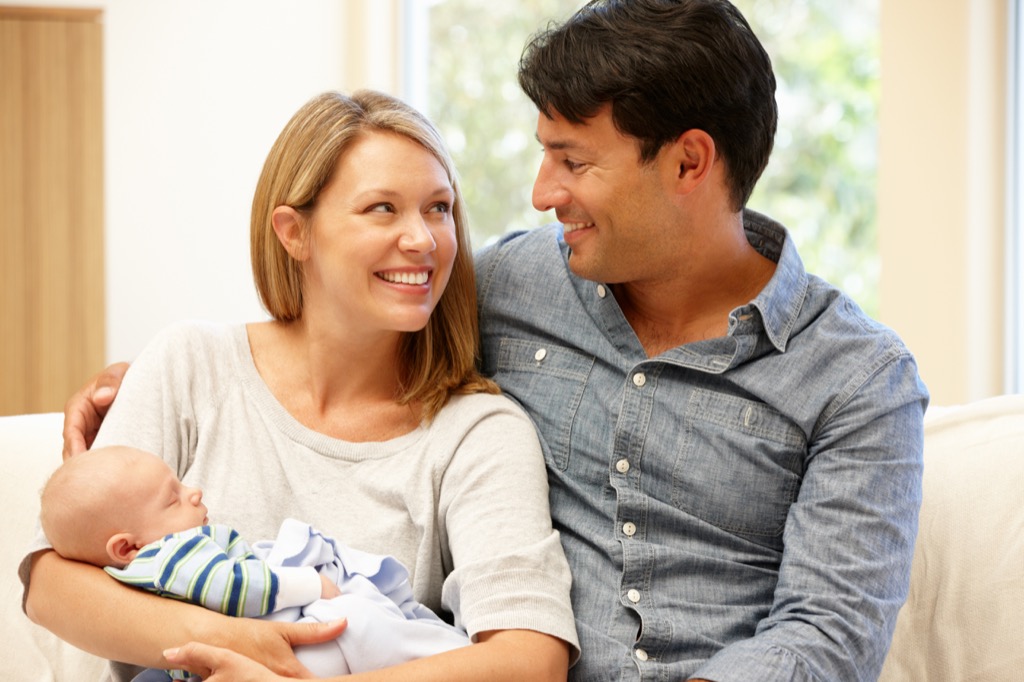
According to a study published in the International Journal of Aesthetic And Anti-Ageing Medicine, there’s a reason why pregnant women have the most glorious locks. The natural hair cyclegoes like this: every hair on your head grows for a total of 6 years, then goes through a rest phase that lasts for two to three months. However, during pregnancy, most of your hairs are in the resting phase, making your hair appear strong and healthy. So, many women experience postpartum hair loss as a result of this phase coming to an end. Unfortunately, there is no way to combat this form of hair loss, though it eventually subsides after a few months.
8
A thyroid condition
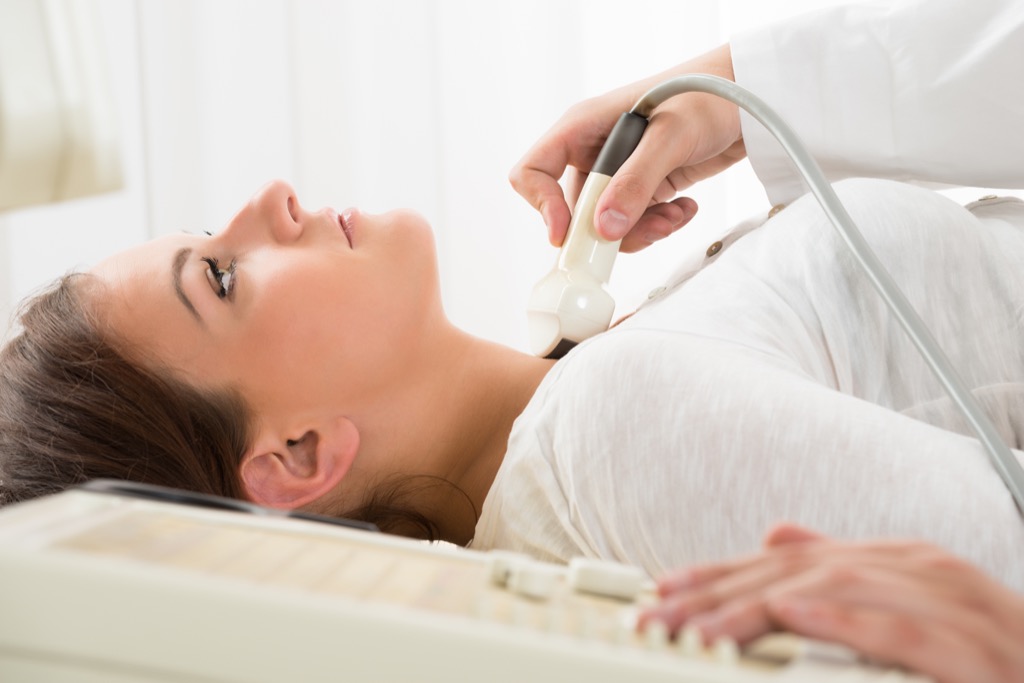
Hypothyroidism, or an underactive thyroid gland, is another possible reason for the lull in hair growth. Since your body is not producing the adequate amount of hormones, your hair cycle is damaged. If you’re experiencing any of these symptoms, such as dry skin or depression, it might be time to talk to a doctor. And for more ways to keep this essential organ running smoothly, check out the 20 Ways to Have A Healthier Thyroid.
9
You’re over-dieting
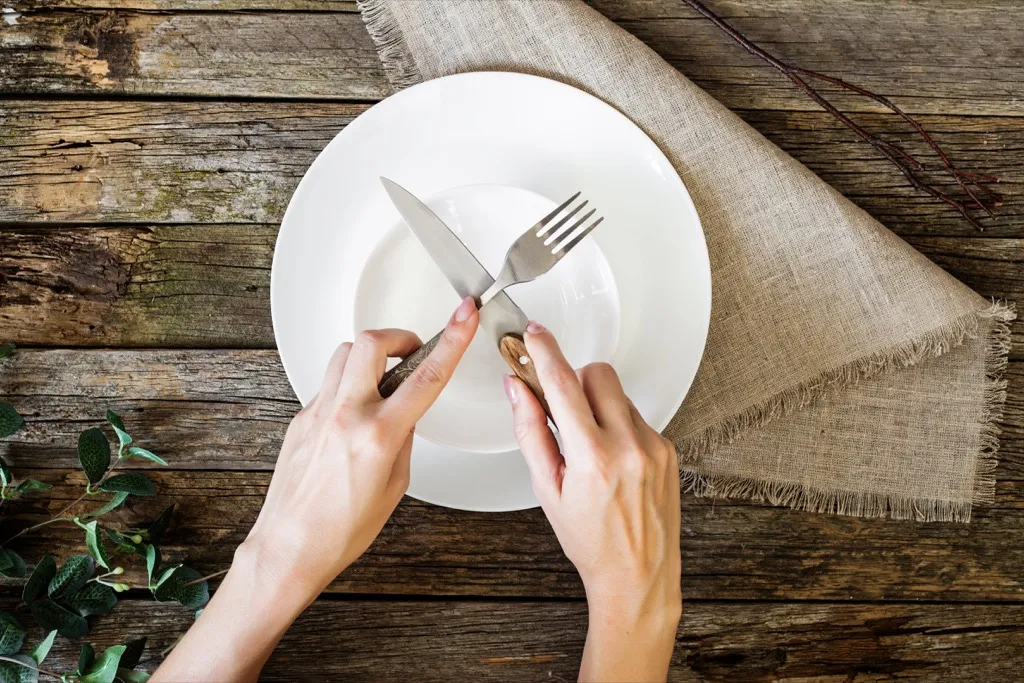
Similar to hitting the gym too often, restricting your diet in unhealthy ways can have severe consequences for your luscious locks. If you’re majorly restricting your daily calorie intake, this will slow down your metabolism and your bodily functions, including the growing cycle of your hair. Aside from that, your hair will be thirsty for those essential nutrients that it is no longer receiving. If you really must diet, start taking biotin supplements to maintain hair growth.
10
Over-styling
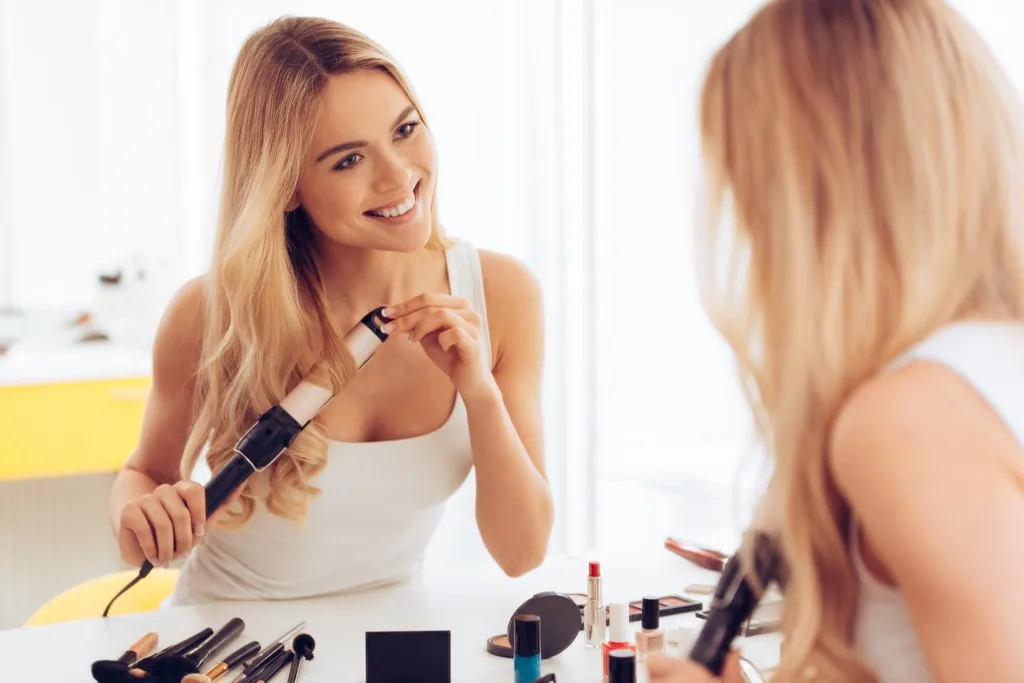
It’s simple, really: the more you mess with your hair, the more damage you cause to your follicles. This truth was laid out in Dove Men+Care’s Hair Fall Study, which found that the over-styling and use of heated tools were incredibly damaging to hair. As it turns out, the solution to this problem is equally simple: don’t overdo it. At the most, you should only need to use heat on your hair once a week. To make your style last longer, it may be time to invest in a can of dry shampoo. And for more hair care tips, This is the Healthiest Way to Straighten Your Hair.
11
Hormone replacement therapy
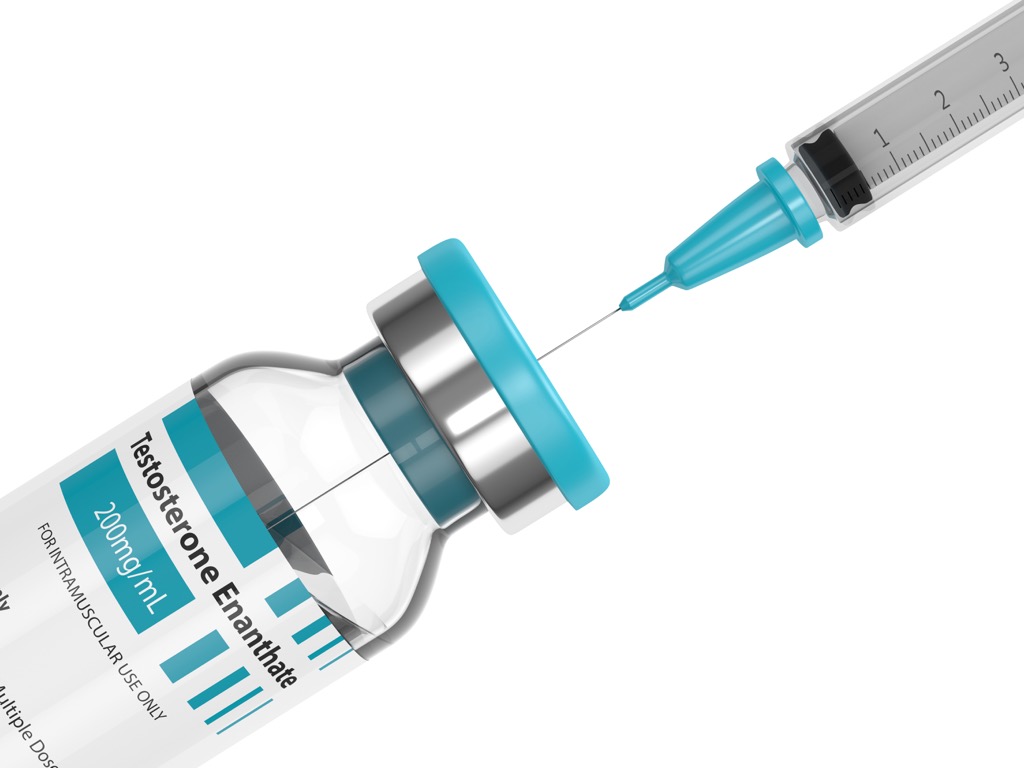
Hey guys, if you’re upping your testosterone levels for peak gym (or bedroom) performance, your hair follicles sure won’t be thanking you for this hormonal shift. Either you make due with your receding hairline or opt to stick with your natural testosterone levels in favor of a fuller head of hair.
12
An autoimmune disease
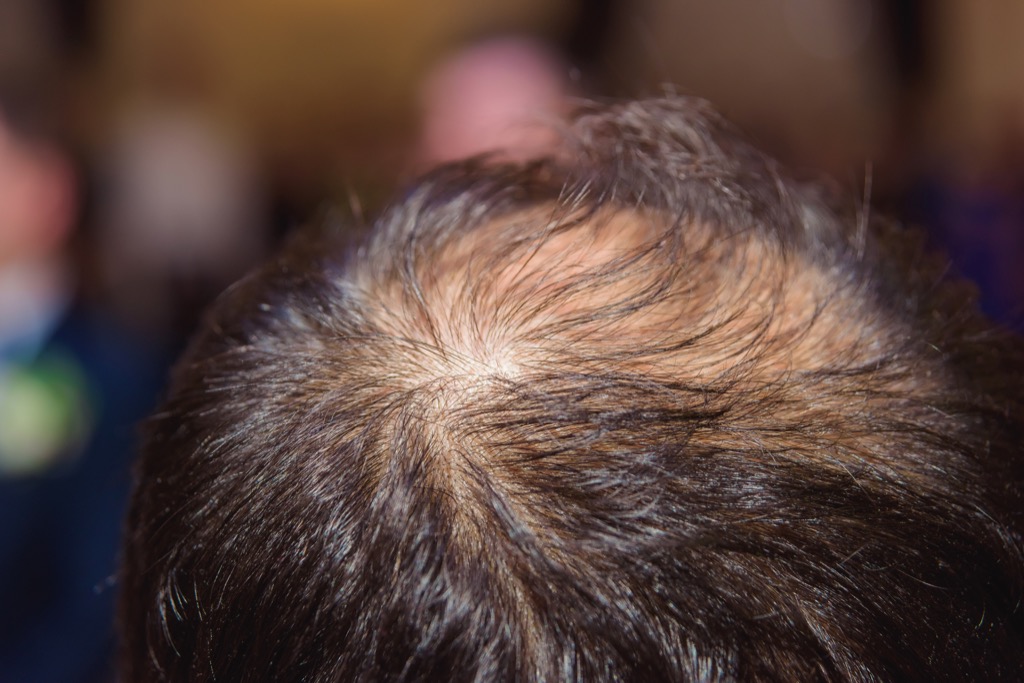
Another sneaky culprit of hair loss is alopecia areata, an autoimmune disease that confuses the hair for an attack on the immune system. According to Marc Glashofer, MD, a dermatologist in New York City, if your hair loss is occurring in round circles on your scalp, then you most likely are a victim of alopecia. Alopecia can be treated with steroids and even over-the-counter products like Rogaine.
13
Trichotillomania
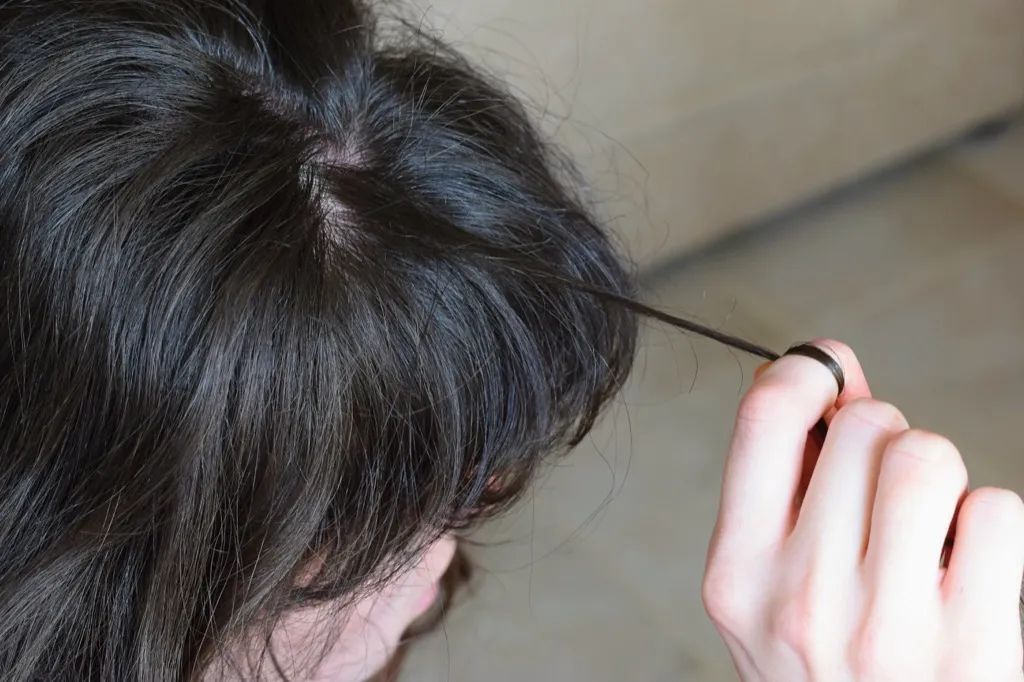
Trichotillomania, or hair-pulling disorder, often afflicts those with Obsessive Compulsive Disorder or anxiety. According to the Mayo Clinic, anxiety attacks often result in hair-pulling episodes that can cause permanent hair loss for Trichotillomania sufferers. Those with the condition can benefit from habit reversal training, cognitive therapy, acceptance and commitment therapy, and, in extreme cases, mood-stabilizing medication, like Prozac or Paxil.
14
Smoking

You’ve heard a million times and a million reasons why smoking is bad. Here’s another one for you. If you’d like to keep your glossy mane, it’s time to call it quits. According to research out of the University Hospital of Zurich, smoking causes “damage to DNA of the hair follicle, smoke-induced imbalance in the follicular protease/antiprotease systems controlling tissue remodeling during the hair growth cycle, pro-oxidant effects of smoking leading to the release of pro-inflammatory cytokines resulting in follicular micro-inflammation and fibrosis and finally increased hydroxylation of oestradiol as well as inhibition of the enzyme aromatase creating a relative hypo-oestrogenic state.” So, yeah, switch out your nasty habit for one that doesn’t mess with your body chemistry in such profound ways.
15
Lack of sleep
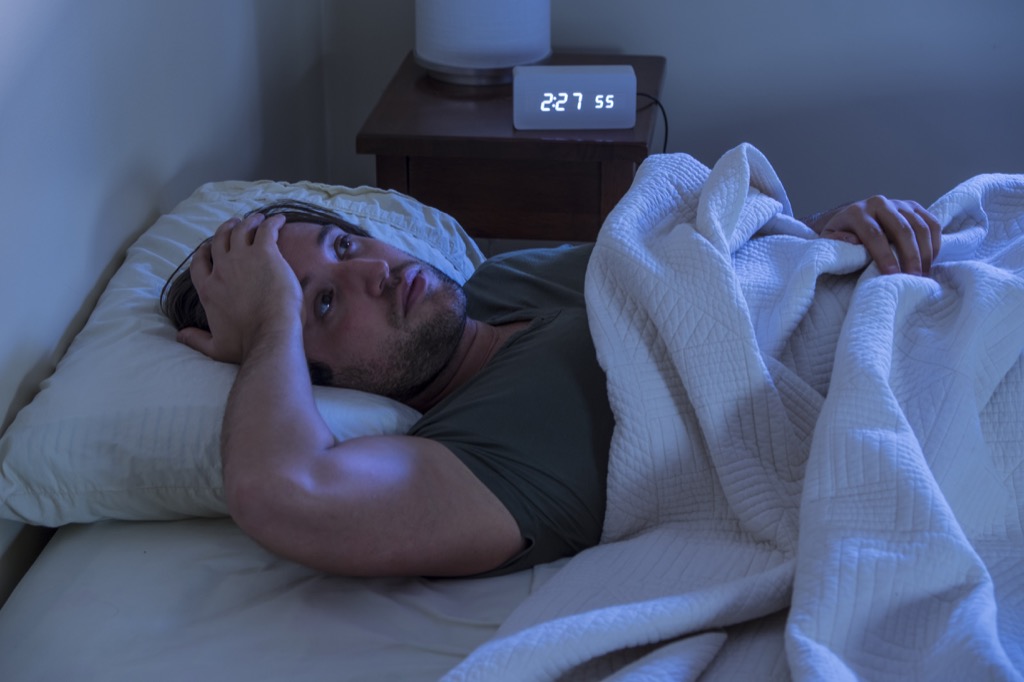
Lack of sleep can push your body into a state of distress, which can actually halt hair growth. So, get some zzz’s and your hair will gladly thank you. According to Wellness Magazine, one out of every six Americans feel sleep-deprived. If your minimal sleep time is leaving you feeling exhausted, you can be sure that your hair follicles are feeling the same way.
16
Polycystic ovary syndrome

This hormonal disorder that may cause women to have infrequent or prolonged menstrual cycles. According to the Mayo Clinic, at its worst, this syndrome causes the ovaries to develop small collections of fluids, called follicles. Another symptom that occurs in a percentage of these patients is hair loss, spurred on by the constant fluctuation in hormone levels. These symptoms can all be made more bearable with exercise and dieting.
17
Genetics

Genetics is the most common reason for baldness, yes, but, according to this study in PLOS Genetics, it’s a more complicated process than we initially thought, and involves more than 280 genes. From this genetic map, researchers were able to determine which participants were in danger of losing their hair, and from those in the danger zone, about 20 percent could blame their mothers for such a predicament—not their father. Though, it is important to note that men and women lose their hair in very different ways. For men, the hair slowly begins receding at the temples, before eventually forming an M-shaped hairline, while women may notice a gradual widening of the scalp and thinning texture of their hair.
18
Stress
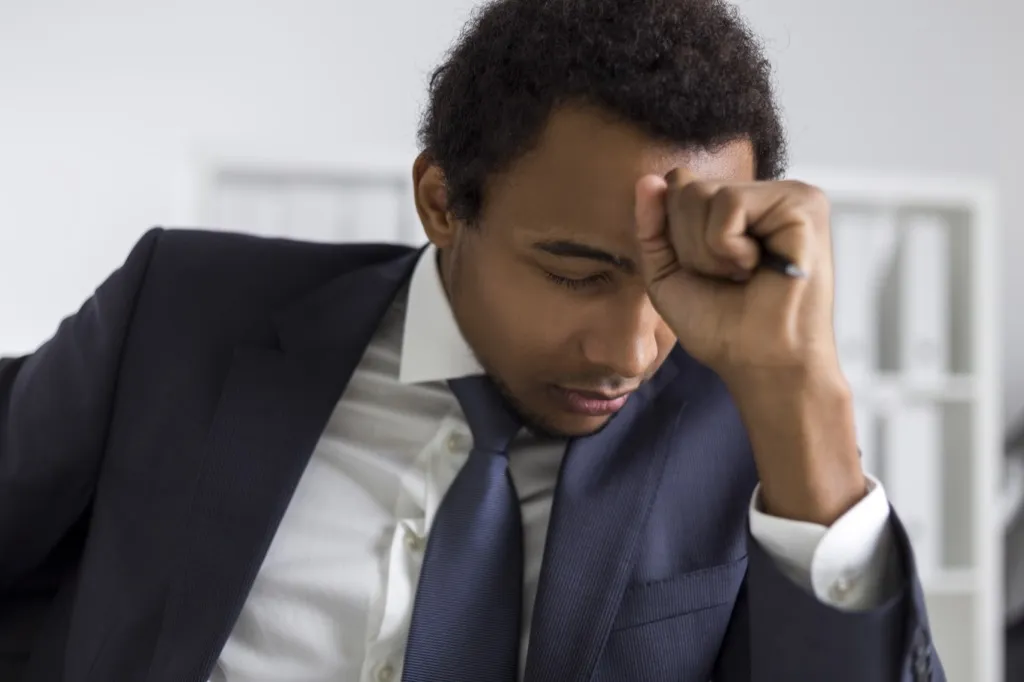
Stress can affect every aspect of your health in sneaky ways, and the thinning of your precious locks is but one. In this study published in the American Journal of Pathology, researchers found that stress can actually cause your hair cycle to be pushed into a common type of hair loss called telogen effluvium. At the peak of your stress, you can actually shock the hair cycle, repeatedly pushing it into the shedding phase. However, this type of hair loss doesn’t have to be permanent. Engaging in activities or practices that release these feelings of tension and worry can bring your hair back to a healthy routine—one that doesn’t clog your drain. To cool down and relax for good, bone up on these 32 Secrets of a Stress-Proof Life.
19
Antidepressants
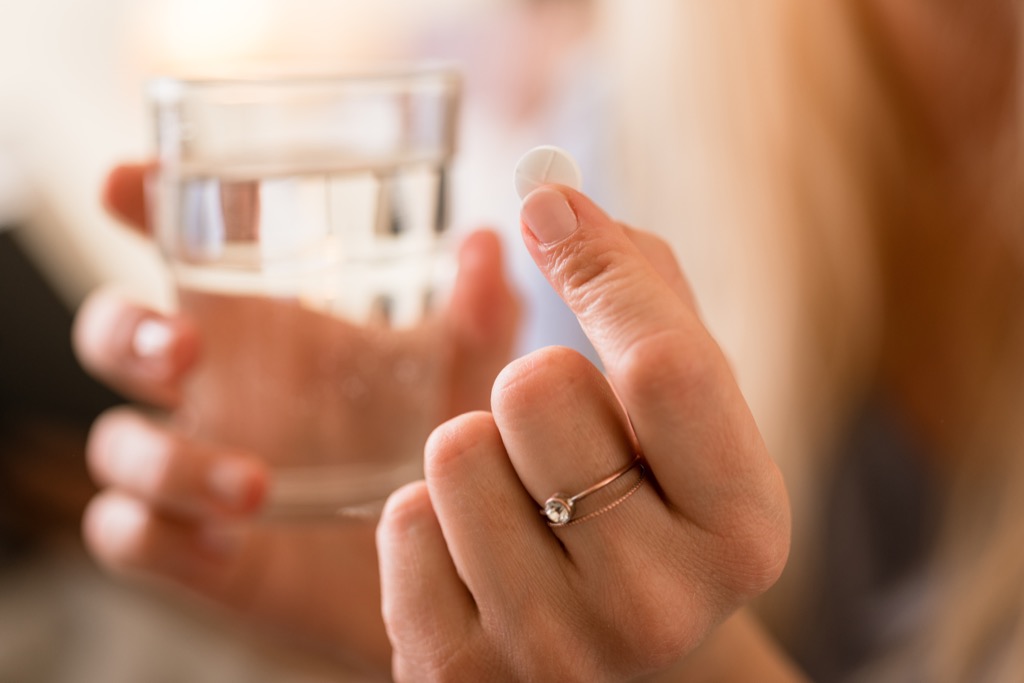
According to Dr. Glashofer, lithium, often used to treat bipolar disorder, can affect the rate your hair grows. If you find that your hair has stopped growing since being prescribed a certain antidepressant, talk to your doctor about trying out another one.
20
You’ve just had surgery
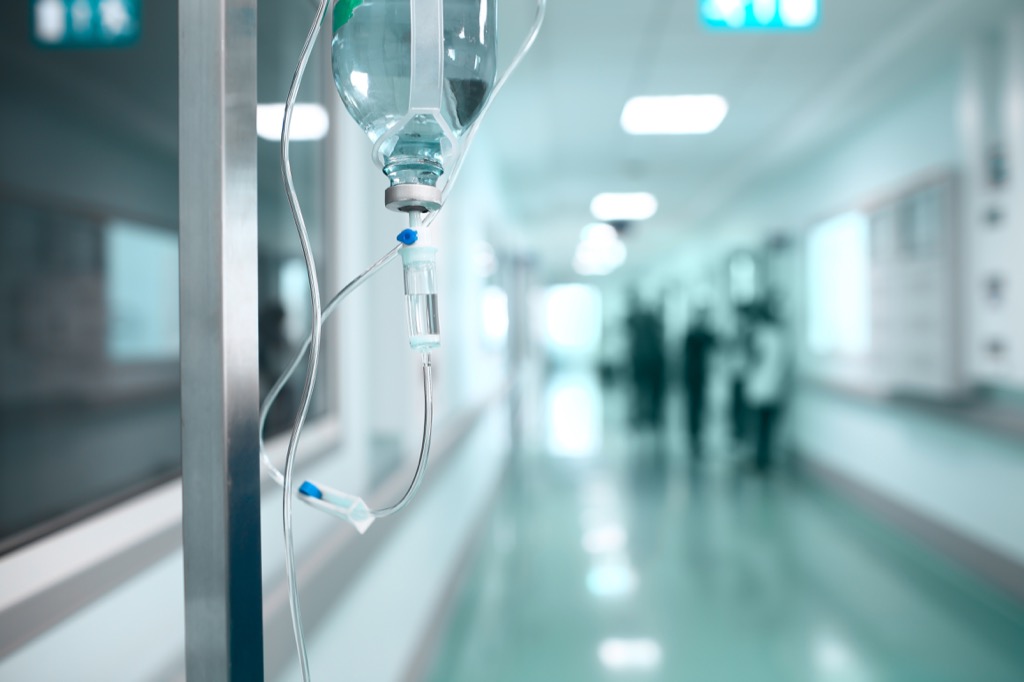
After a major (or even minor) surgery, the amount of stress you’ve forced upon your body is so great that it takes a while for normal bodily functions, like hair growth, to resume like normal. However, if after a few months you’re still noticing more than the appropriate amount of hair clogging your drain, it may be time to call your doctor.
To discover more amazing secrets about living your best life, click here to sign up for our FREE daily newsletter!